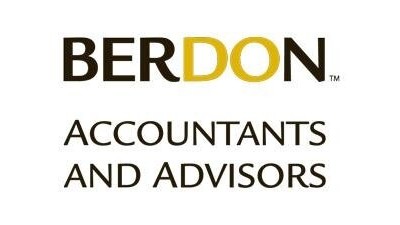4 Qualities Tenants Demand In Their NYC Offices

The New York City office market is transitioning from a space-centric market to a service-oriented one. Disruptive co-working business models, changing workplace norms, technological advancement and millennials' increasing influence in their respective organizations have all forced the NYC office market to evolve and cater in new ways to employees. These are the four attributes tenants are increasingly demanding in their office space.
1. Millennial-Friendly Environment

One significant force redefining the office is a generational shift. Baby boomers, still active in some key decision-making roles, are either being replaced by millennials or feeling an increased pressure to provide for them. By 2020, this key demographic will comprise 40% to 50% of the working population.
“Millennials tend to look for greater flexibility, functionality and responsiveness from their office,” Berdon LLP Audit Manager Vincent Altieri said. “Boomers might look for more traditional amenities, such as a prestigious address or plush interiors.”
"The millennial generation is changing how we develop buildings, how we reposition buildings, it's changing how retail interacts with its customers, it's changing expectations as you move into properties like ours across Manhattan," Sage Realty CEO Jonathan Iger said.
According to Altieri, the younger workforce has a preference for the trendy Midtown South submarket, which has been a popular destination for startups.

Destinations like Hudson Yards appeal to companies in a diverse range of industries with their accessibility and amenities. New construction can also be more closely tailored to business’ modern needs.
“Trendy locations such as these offer views and amenities that allow companies across all industries, including professional services firms such as law and architectural and engineering firms, to attract and retain the best talent,” Altieri said. “New developments, which can offer better structural layouts due to changes in mechanical designs, are also maximizing square footage to keep costs down.”
2. Cost Savings Through Sustainability

LEED certification and energy-efficient systems can command a potential tenant’s attention. Tenant satisfaction is closely linked to a property’s commitment to sustainability.
According to Altieri, businesses are increasingly gravitating toward buildings with sensors that can track motion, light and temperature to help tenants save on utility costs. He sees a proliferation of visible measures like rooftop wind turbines and organic gardens that save money and demonstrate social responsibility.
3. Flexible Workspaces

Businesses face mounting pressure to become responsive to the rapidly changing needs of their clients and employees. Companies need workspaces that can readily adapt, with accommodations like movable walls, build-outs and furniture preinstalled.
“The days of the big corner office, private washrooms and banks of private offices are fading,” Altieri said. “To encourage interaction among employees, many business tenants are looking for more communal workspaces as well as centralized support services, such as kitchens, copy centers and mail areas. It’s all part of a sociological change that is altering the business landscape.”
Businesses are also demanding flexibility in their lease agreements, permitting cancelation or downsizing prior to the lease expiration date.
4. Technology And Digital Infrastructure

With many people now shopping from their computers, smartphones, or mobile devices, and six in 10 shoppers completing a purchase on a different device they started it on, leveraging technology to enhance a property’s marketing strategy is becoming commonplace. For instance, virtual reality tours of a space can give brokers and potential tenants the ability to customize and picture the potential of a vacant office.
"Technological advancements are also extending beyond the leasing process to everyday interaction that enhances efficiency and convenience for tenants," Altieri said. "While maintaining a clean, fully functional building is both essential and an obvious draw, the standard level of service in this area is no longer sufficient. Using online notification systems that allow tenants to alert landlords to problems as they arise, track progress in mitigating issues, and send messages when projects are completed are providing tenants with more control over issues."
Seventy-two percent of leasing decision makers feel it is critical to have reliable internet connectivity in their office space to conduct company business. As a result, a growing number of offices are opting to demonstrate the robustness of their digital infrastructure with certification from WiredScore.
To learn more about this Bisnow content sponsor, click here.

